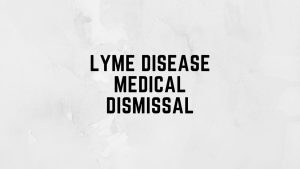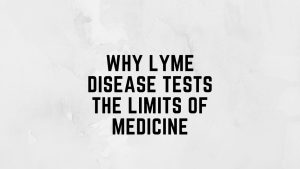
Many parents notice something is wrong long before they have a name for it. A child who once learned easily may begin to struggle to concentrate. Homework takes longer. Instructions need to be repeated. Teachers mention inattention or declining performance.
In children with Lyme disease, these changes are often described as brain fog. While the term is informal, it captures a very real pattern of cognitive dysfunction that can interfere with learning, behavior, and daily functioning.
Importantly, these cognitive changes are usually functional. They do not mean a child is losing intelligence or experiencing permanent brain damage.
What Brain Fog Looks Like in Children
Children rarely describe brain fog directly. Instead, it shows up in subtle and frustrating ways. A child may appear inattentive, forgetful, or slow to process information. They may struggle to keep up with classroom demands or lose track of multi-step instructions.
Tasks that once felt automatic can suddenly require enormous effort. Parents often hear concerns about attention or motivation, while the child insists they are trying their best.
Why Brain Fog Is Often Missed or Misunderstood
Brain fog in children is frequently mistaken for anxiety, attention-deficit disorders, or behavioral problems. Because routine imaging and laboratory studies are often normal, cognitive complaints may be minimized or attributed to stress or mood.
In Lyme disease, however, cognitive symptoms can occur even when standard tests are unrevealing. Subtle changes in brain function, inflammation, and signaling can impair processing speed, working memory, and mental endurance.
The Neurologic Basis of Cognitive Symptoms
Lyme disease can affect the central nervous system in ways that disrupt how the brain processes information. Immune activation, neuroinflammation, and altered neurotransmitter function may interfere with attention, memory, and executive functioning.
In children, whose brains are still developing, these disruptions can have a disproportionate impact. The result is not a loss of intelligence, but reduced cognitive efficiency, especially during periods of stress or fatigue.
Cognitive Overload and Emotional Regulation
Cognitive strain and emotional regulation are closely linked. When a child is struggling to process information or sustain attention, the nervous system can become overwhelmed.
This overload often contributes to irritability, emotional outbursts, or withdrawal. In some children, it may appear as oppositional or defiant behavior. What looks like misbehavior may actually reflect a child who has reached their cognitive limit.
School Performance and Learning Challenges
School environments place sustained demands on attention, processing speed, memory, and sensory tolerance. For a child experiencing brain fog, these demands can quickly become exhausting.
Teachers may notice declining grades, incomplete work, or difficulty following classroom routines. Parents may observe school avoidance, academic anxiety, or a sudden drop in confidence.
Fluctuation and Unpredictability of Symptoms
One of the most confusing aspects of brain fog in children is its variability. A child may function well one day and struggle significantly the next.
This fluctuation can lead adults to assume inconsistency or lack of motivation. In reality, symptom variability is a hallmark of neurologic and immune dysregulation.
Why Reassurance Matters
Parents often worry that cognitive symptoms signal permanent damage or long-term decline. In most cases, this fear is unfounded.
Brain fog in children with Lyme disease is typically functional and potentially reversible. With appropriate recognition and support, many children experience gradual improvement as neurologic stability returns.
Clinical Takeaways
Brain fog in children with Lyme disease reflects neurologic and immune dysfunction rather than loss of intelligence or motivation. Cognitive symptoms may affect attention, memory, processing speed, and school performance, often fluctuating over time. These challenges frequently overlap with emotional and behavioral changes and benefit from a compassionate, systems-based approach that validates the child’s experience and reduces unnecessary pressure during recovery.
Frequently Asked Questions
Is brain fog in children with Lyme disease permanent?
Brain fog in children is typically functional and potentially reversible. Most children experience gradual improvement with appropriate treatment and support, though recovery may be uneven.
Why does my child seem better some days and worse on others?
Symptom fluctuation is a hallmark of neurologic and immune dysregulation. Cognitive capacity may vary with sleep quality, stress, physical exertion, or immune activity.
Can brain fog affect behavior or emotions?
Yes. Cognitive overload often contributes to irritability, emotional outbursts, or withdrawal. What appears as misbehavior may reflect a child who has reached their cognitive limit and cannot manage additional demands.
Related Reading
- Brain Fog and Cognitive Dysfunction in Lyme Disease
- PANS and PANDAS: Immune-Mediated Neuropsychiatric Syndromes
- Lyme Disease and Impact in School
- How Do I Parent or Work With Lyme Disease?
- Preventing Chronic Lyme Disease
- Living With Lyme Disease: Is Recovery Possible?
References
- Skogman BH, Ernerudh J, Forsberg P, Bergström S. Long-term clinical outcome after Lyme neuroborreliosis in childhood. Pediatrics. 2012;130(2):262–269.
- Tager FA, Fallon BA, Keilp J, et al. A controlled study of cognitive deficits in children with Lyme disease. J Neuropsychiatry Clin Neurosci. 2001;13(4):500–507.
- Vázquez M, Sparrow SS, Shapiro ED. Long-term neuropsychologic and health outcomes of children with facial nerve palsy attributable to Lyme disease. Pediatrics. 2003;112(2):e93–e97.
- Bloom BJ, Wyckoff PM, Meissner HC, Steere AC. Neurocognitive abnormalities in children after classic manifestations of Lyme disease. Pediatrics. 1998;102(4):E52.



What’s your approach to Lyme brain? Methylene blue seems to help but really nothing has helped me.
I have had to individualize treatment and still Lyme and co-infections remain challenging
I wish there was a one size fits all
My son has schizoaffective disorder from a Bartonella infection, no treatment has helped so far, he has had antibiotics, ABARTS, wholistic drops, nothing helps & he’s getting worse
I am sorry to hear your son remains ill. I hope you find a solution
How “early” is early diagnosis and treatment? My daughter’s Lyme seems to have been reactivated with a Covid acute infection in March 2022 and it is only in November/December 2024 that she has had her diagnosis of Lyme and Bartonella coinfection having thought this was only Long Covid all along. Despite the fact that she is now receiving individualized antibiotic treatment, our fear is that because of the delay in diagnosis it could be too late to recover without any sequelae. We are in the UK.
I have Lyme disease who are sick for years who did well with oral antibiotics
This is me !!!! Is there a replay or a way to watch these informative videos? I missed the initial airing
Thanks for your feedback. I have been posting short videos covering common sense Lyme disease cases and questions. Stay tuned
I have been severely struggling with Morgellon’s Disease for the last 2 yrs. The 16 months were unbearable. I was bedridden & in tremendous pain. The things that were coming off my skin were sheer terrifying. My anxiety was at all time new high. I felt panicked, anxious, petrified, alone & isolated just constantly waiting for the next ball to drop…and it always did, usually worse than the previous time. I began to feel frayed like I was coming apart at the seams. The longer I struggled with this disease going to doctor after doctor, ER after ER, and urgent cares, I began to feel so hopeless and helpless. The more the doctors said there was nothing wrong with me, and this was just delusions of parasitosis, the more my family turned on me & refused to believe me, let alone support me. They actually forced me under duress to get not one, not two, but three psych evals in just over 6 months. If that wasn’t bad enough, again under complete and total duress, they forced me to sign my rights to my son over to my mom, so they could have me committed! Anyone who knows me, knows my son is my everything…my heart, my soul, my whole life. All of this led to depression eventually. There’s just so much one person can take. I passed ALL 3 psych eval with flying colors! The psychiatrist REFUSED to admit to psych ward. He tried explaining to my family that I did have severe anxiety & had fallen into a depressive state due to my physical ailment, which he believed was a chronic illness. He went on to say what I needed was to find the right doctor to diagnose & treat me and people around me to support me during this difficult time. Well, that wasn’t received. My sister went on to threaten him by stating that if he didn’t commit me she and the rest of my family would be calling CPS (they were already in contact with them at that point) and make certain that a 12 yr old boy would be taken from his home. The psychiatrist refused to back down, so my sister stormed out leaving me with no ride home. I haven’t spoken to my sister in 17 months and I don’t think I will ever speak to her again. There’s no coming back from this.
I’m telling you my back story, so you can see what a struggle and challenging time this has been. Most Morgellon’s patients have a similar story. It shouldn’t be this way. When someone suggested you in one of my Morgellon’s support group on FB, I felt a glimmer of hope for the first time in 2 yrs. It was an amazing feeling! Do you treat Morgellon’s? Also, I have NJFamilyCare Insurance. Do you accept that? This disease has taken everything from me—my family, my job, my money, my looks, my self esteem, my self worth, my confidence, etc. All I dream of anymore is getting my life back…getting back to normal. If you could help me get there, I would be eternally grateful. 🙏
You are welcome to call my office at 914 666 4665 with you question
You forgot a few! According to the National Institute of Health, under Babesia alone it can also cause uncontrolled and uncontrollable laughing or crying, anorexia, abnormal sensitivity to being touched and light sensitivity. There are others, but they aren’t necessarily brain related.
The list gets pretty long once one looks deeper to the neuropsychiatric and autonomic findings in Lyme disease and co-infections.